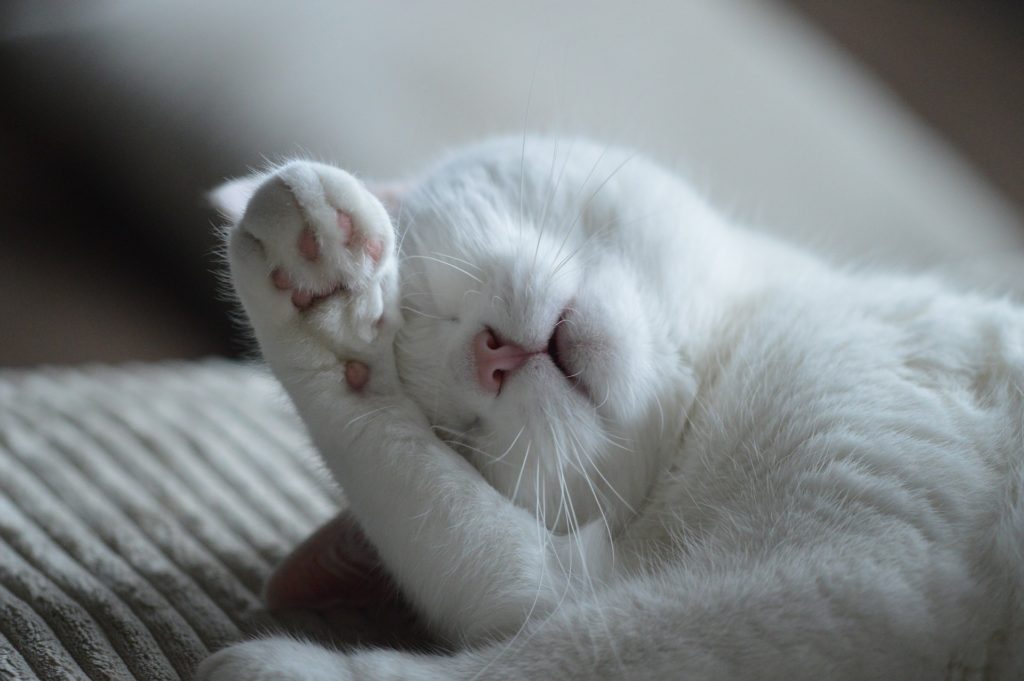How to get better deep sleep: Sleep is a healthy thing – and a lack of sleep is detrimental to your health. But it’s not so simple. There are two types of sleep: deep and light.
Deep sleep (also known as Slow-Wave Sleep) tends to be the best sleep you can get, where your body heals itself, your brain flushes out toxins, and you dream – which is also good for you.
Light sleep is the sort of tossy-turny-wakey kind of sleep that most people experience these days. It’s not very restful or helpful. The worst part is that many people don’t know if they’re having deep or light sleep at night… and that can have a huge effect on how much energy you have during the day.
The easiest way to tell if you’re getting enough deep sleep? How awake do you feel in the morning? If you’re tossing and turning all night, but feel refreshed after 6 hours of sleep – then chances are you’re sleeping well. But if you need 9 hours per night, but still feel tired when waking up – then chances are your sleeping pattern needs some work done!
The most important thing is to get more deep sleep. One great method is to take a hot bath, then lie in bed with a book while your body temperature falls until you feel sleepy. This usually takes less than an hour.
Hot baths have several benefits: they’re relaxing, and they make you sleepy. But the main reason they are good is that they are a way of getting exercise without feeling tired or sweaty afterward. Learning how to get better deep sleep can require a comprehensive approach.
What Causes Lack of Deep Sleep
Lack of deep sleep is most often caused by things that interfere with your ability to get a good night’s sleep. Sleep interruptions, like those caused by snoring, pain, and frequent trips to the bathroom, can cause a lack of deep sleep. Other factors, such as naps, alcohol consumption, and other medications, can also affect your ability to have a deep sleep.
If you aren’t sleeping well at night, try limiting your daytime naps and taking steps to ensure you’re getting good sleep quality. Avoid caffeine or alcohol before bedtime and create a relaxing pre-bedtime routine that will help you wind down for the evening. If you’re still having problems after changing your habits, talk to your doctor about ways to improve the quality of your sleep or rule out health issues that may be affecting your ability to get restful sleep.
Lack of deep sleep is a problem that affects millions of people around the world. This can be caused by a number of factors:
- Disrupted sleep patterns.
- Stress and anxiety.
- Unhealthy sleeping environment.
- Illness and pain.
- Drugs and alcohol.
Why do some people not get deep sleep?
The first thing to note is that the rationale for getting a good night’s sleep is widely accepted but poorly understood. We know that we are better at learning new things after a good night’s sleep and that this is related to something happening in the brain during sleep. But it is not clear exactly what that something is, or why it should be beneficial.
There are two main theories about what happens during sleep. One theory says that you process memories during sleep. The other says you consolidate them: you pack them more efficiently into the available space in your brain. Both theories are somewhat vague about how this happens, and there is some evidence for both of them. It is possible that they are both happening simultaneously, with the same effect.

Techniques to Fall Asleep Faster
- Try a sleep mask.
• Sleeping in total darkness is ideal for our bodies to fall asleep, but not everyone is able to sleep in a pitch-black room. A sleep mask can help you achieve that darkness, even if you have to sleep during the day or with a TV on at night.
- Keep your cell phone in another room.
• It is easy to get into the habit of checking your phone before bed and right when you wake up in the morning. But this habit can be detrimental to your sleeping patterns and ability to fall asleep fast. If your phone is close by, resist the urge to check it and instead just turn it off completely and put it in another room while you sleep.
- Turn off music or sounds that may keep you awake.
• If you have trouble sleeping with noises, try turning them off completely. Only some people are able to drift off with background noise like a fan or white noise machine; others may find that those sounds actually keep them awake longer.
- Make sure the temperature is cool enough for sleeping.
• Hot temperatures can make it hard for some people to fall asleep, so consider turning down the heat or using fewer blankets on your bed if you
Most people think it takes a long time to fall asleep – 30 minutes, on average. But in fact, you can do it in less than 10 minutes.
The key is to stop trying to fall asleep. When you are trying to learn how to get better deep sleep, there are several things to think about. Ninety percent of the time, if you lie in bed and try to fall asleep, you will be awake for at least a few minutes. This is because your mind knows that “trying to sleep” means lying still with your eyes closed, and that’s what you are doing; so it concludes that you must not be asleep yet. You’ll get sleepy only when your mind concludes that you are asleep.

Vitamins and Minerals to Help You Sleep
Vitamin B6, Magnesium, and Zinc are the most recommended. However they can be very powerful, so start with a low dose of 25 mg (or less) and work your way up as needed. Vitamin B6 is best taken with dinner, but magnesium and zinc can be taken at bedtime.
Vitamin D, followed by Calcium, and Melatonin (which is not technically a vitamin but more of a hormone produced by the body) can also help.
As for melatonin, it’s not a vitamin or mineral. Melatonin is a hormone that helps regulate the body’s sleep-wake cycle. You can buy it in supplement form, but it’s not recommended for regular use. That’s because it can affect the body’s natural production of melatonin. It’s better to focus on lifestyle factors you can control, such as stress levels, exposure to light during certain times of day, and physical activity level.
As a general rule, you should avoid eating large amounts of food right before bedtime. If you do eat a snack close to bedtime, make it something light and healthy like fruit or crackers. Also try to avoid spicy foods or those that are high in fat, as these can cause indigestion or heartburn, which can keep you awake at night.
Conclusion
If you are having trouble sleeping, remember to relax. Don’t stress yourself out over it. It will only make it harder for you to fall asleep.
Drink some herbal tea before bed to help you relax. Don’t eat or drink anything with caffeine in it. Caffeine is a stimulant, so it can keep you awake for hours on end. Eat healthy during the day and exercise regularly, but don’t do either too close to bedtime or it might keep you awake.
Finally, create a comfortable sleeping environment and stick to a regular sleep schedule as much as possible. Your body will get used to sleeping at certain times if you allow it to.
It is important to get a good night’s sleep because it will help you to keep your mind alert during the day. Getting enough sleep will also help you to control your weight, prevent disease, and feel better overall.
The best way to get enough sleep is to set up a regular sleep schedule, go to bed early, make sure that your bedroom is comfortable, and try not to worry right before bedtime. Following these tips can help everyone to get a good night’s sleep.
The Health Wealth Lifestyle has provided the above article on how to get better deep sleep for informational purposes only. Consult your health care provider as you see fit.
Disclosure: I may receive affiliate compensation for some of the links above at no cost to you if you decide to purchase anything. This site is not intending to provide health or financial advice. This is for entertainment only. Please consult a professional as you see fit.
